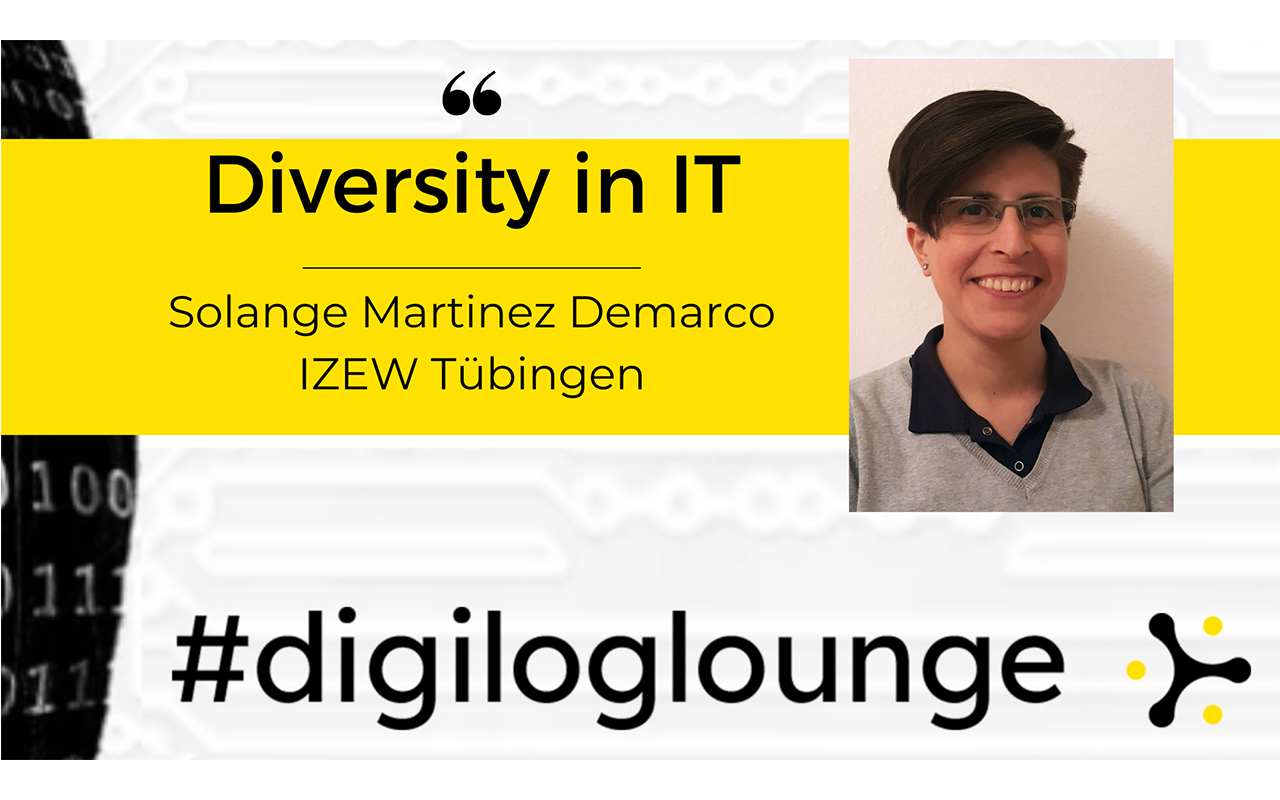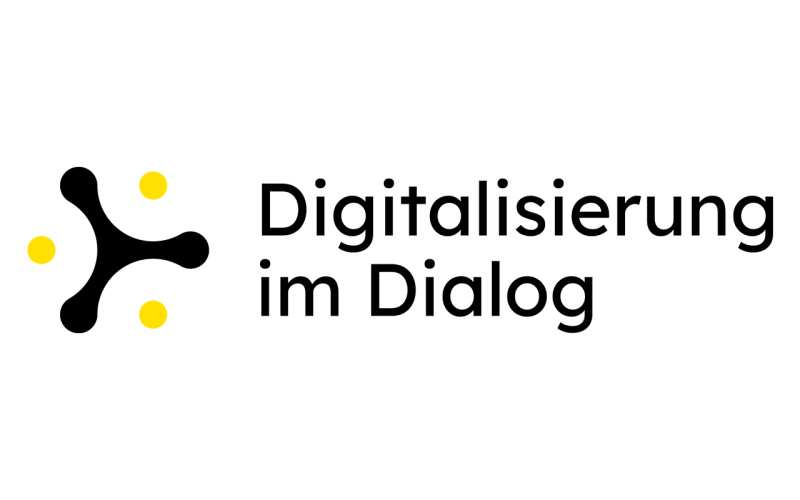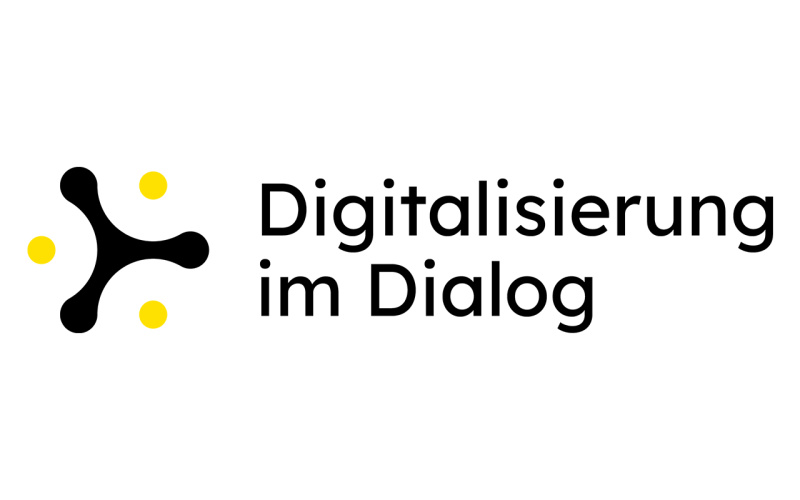- Event
- Talk
Digiloglounge Digital
Diversity in IT
Thu, June 24, 2021 5:00 pm – 6:00 pm CEST
- Location
- Online
- Language
- English
As part of the discussion series »Digiloglounge Digital«, Sabine Faller talks to Solange Martinez Demarco about diversity in IT!
What do we talk about when we talk about diversity in IT? Diversity in ICT is not a new issue, but it has been mostly associated with gender equality. Although it is a positive and necessary step towards a more egalitarian society, the dominant framing for gender equality presents the issue as a binary definition: women or men. »Why is it that if women make up half of the world’s population, they represent only about 20 per cent of the world’s employees in the sector?«
However, this conception essentialises identities, reduces diversity to biological sex and risks invisibilising other minorities and marginalised groups, such as LGBTQ+ people, Black, Indigenous and people of colour (BIPOC), people with disabilities, as well as intersectional identities. In addition, discourses on diversity in IT tend to rely on statistics regarding the number of students in computer science degrees or employees in technical positions in technology companies. However, diversity also means that it is possible to occupy other roles in the industry: in design, training, commercialisation, translation, documentation and even in research on technology as a cultural product.
Moreover, discourses on diversity in IT that focus on metrics often expect that once parity is achieved, the issue will be solved. Since this has not been the case, current diversity discourses are accompanied by ideas of equity and inclusion: »not only to sit at the table, but also to be heard«. What else can diversity mean? And, how to ensure diversity, equity and inclusion in the IT field?
The event is held in English.
The event is accompanied by the telegram group zkm_digiloglounge. We cordially invite you to ask questions in the chat of the group or to join the discussion via our Twitter @digilogbw!
Note: In order to join the chat group you have to register with Telegram in advance. You can find instructions here.
Solange Martinez Demarco studied Political Science at the University of Buenos Aires (Argentina). She holds a European Master in Comparative Local Development (University of Trento, Italy) and a M.A. in European Studies on Society, Science and Technology (Maastricht University, the Netherlands). Since September 2017 she is a research associate at the International Center for Ethics in the Sciences and Humanities (IZEW) at the University of Tübingen working on research projects related to the ethical and social implications of different technological developments.
Sabine Faller is a research associate in the department of museum communication at ZKM | Karlsruhe. Her focus is on the conception and implementation of workshops, projects and educational programs in the fields of media art, digital education as well as online learning - currently for the research project »Digitalization in Dialog – digilog@bw«.


